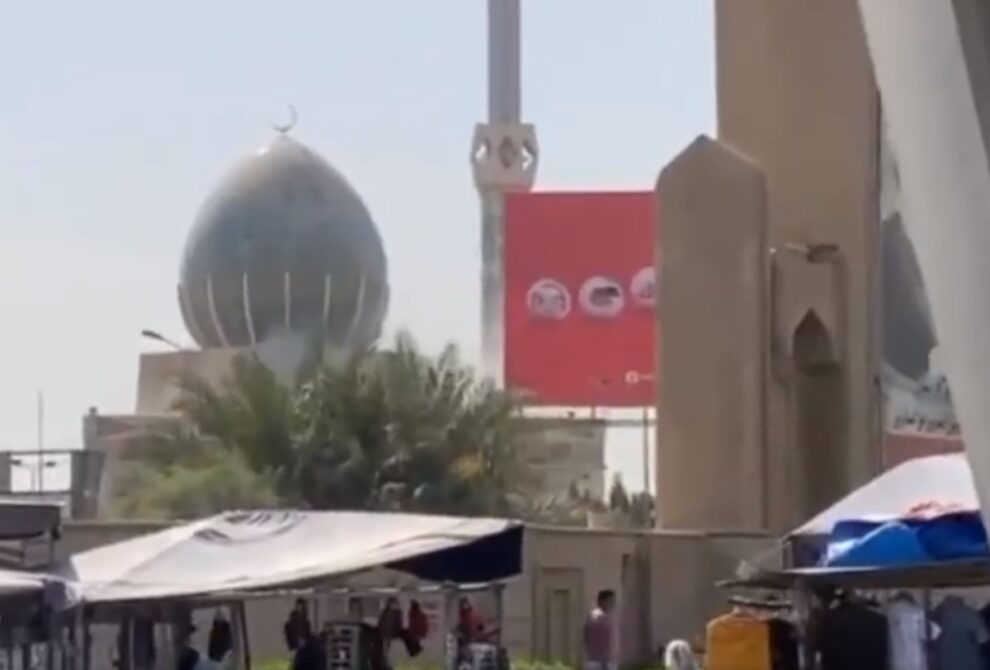Rocket fire targeting Baghdad’s Green Zone wounded 10 people Thursday, as Iraqi lawmakers gathered for their fourth attempt to elect a president and break political gridlock that has sparked protests and deadly violence.
The latest unrest follows warnings this week by the United Nations mission, which said that “the protracted crisis is breeding further instability” in the war-scarred country, and that the divisive politics are “generating bitter public disillusion”.
Over a year since its last general elections, Iraq is yet to form a new government to tackle the problems facing the oil-rich country plagued by unemployment, decaying infrastructure and corruption.
On Thursday morning, lawmakers began to convene in parliament in Baghdad’s Green Zone, the capital’s fortified government and diplomatic district that was recently the site of large protest camps set up by rival factions.
Nine Katyusha-style rockets targeted the Green Zone, the security forces said in a statement, with an AFP correspondent in the parliament hearing several loud explosions. The attacks were not immediately claimed.
At least 10 people were wounded, including six members of the security forces or bodyguards of the lawmakers, as well as four civilians in a district bordering the Green Zone, a security official told AFP.
Initially scheduled for 11:00 am (0800 GMT), the start of the parliamentary session was postponed by about two hours, amid the attacks and with factions lobbying until the last minute.
Democratic institutions built in Iraq since the 2003 US-led invasion that toppled dictator Saddam Hussein remain fragile, and neighbouring Iran wields major influence.
For the past year, Iraq has not only been without a new government, but also without a state budget, locking up billions in oil revenues and obstructing much-needed reforms and infrastructure projects.
– Two presidential frontrunners –
If MPs elect a new president, a post now held by Barham Saleh, the new head of state would be expected to quickly nominate a prime minister who would seek to form a government to replace caretaker premier Mustafa al-Kadhemi.
Lawmakers made three previous attempts to elect a new head of state, in February and March, but failed to even reach the required two-thirds threshold — 220 out of 329 lawmakers — for a quorum.
Under Iraq’s power-sharing system, meant to avoid sectarian conflict, the state president by convention is Kurdish, its prime minister a Shiite Muslim and the parliament speaker a Sunni.
Iraq’s rival Shiite political factions have been vying for influence and the right to select a new premier.
On one hand is the fiery cleric Moqtada Sadr, who wants parliament dissolved and new elections.
On the other sits the Coordination Framework — an alliance of pro-Iran Shiite factions, including the former paramilitary Hashed al-Shaabi — that wants a new government before fresh polls are held.
The standoff has seen both sides set up protest camps. Tensions boiled over on August 29 when more than 30 Sadr supporters were killed in battles with Iran-backed factions and the army.
The largely honorific post of Iraqi president generally goes to the Patriotic Union of Kurdistan (PUK), while the Kurdistan Democratic Party (KDP) keeps control over the affairs of autonomous Kurdistan in northern Iraq.
However, the KDP had this time also been eyeing the presidency.
“It is still not clear that the Kurdish parties have come to an agreement on a president,” said Hamzeh Hadad, a visiting fellow at the European Council on Foreign Relations think-tank.
Among some 30 candidates, top contenders include the incumbent, Saleh of the PUK, aged 61, and Abdel Latif Rashid, 78, a former water resources minister and a PUK leader, running as an independent.
The KDP, with 31 MPs, said Thursday they had withdrawn their candidate — Kurdistan interior minister Rebar Ahmed — and would vote for Rashid.
– Next step, new PM –
Once elected, the president will nominate a prime minister who needs the backing of the largest bloc in parliament.
“What is expected is that whoever is chosen will designate a prime minister right away to form a government,” said Hadad.
A key runner for prime minister is the Coordination Framework’s candidate, former minister Mohammed Shia al-Sudani, 52.
When Sudani was proposed in July, it sparked mass protests by outraged Sadr supporters, who breached the Green Zone and stormed parliament.
